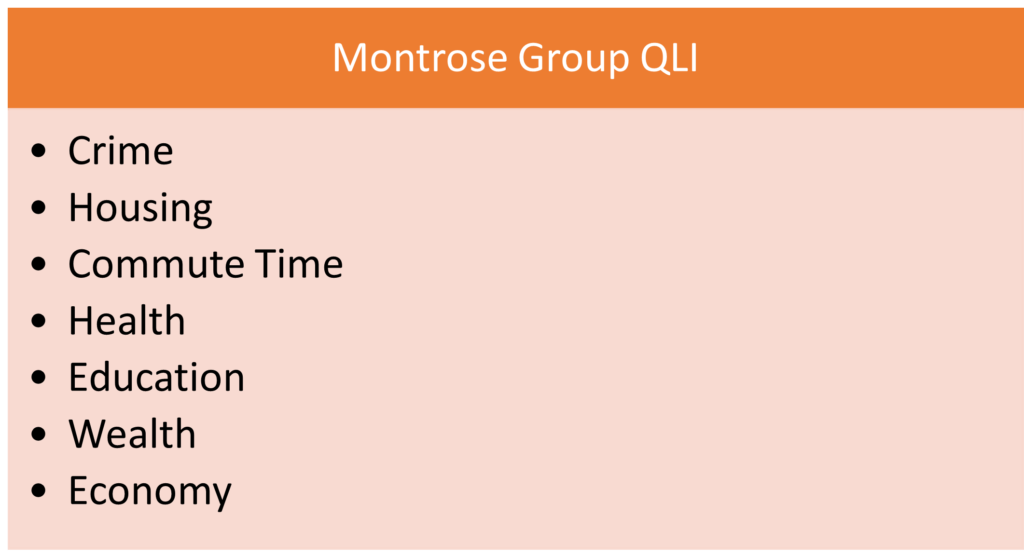The United States is in a battle for talent. In the age of Baby Boomer retirements, knowledge workers and Work from Home (WFH), how a community stacks up compared to peers on the quality of life is an important measure for companies making corporate site location decisions. It has been reported that over the last 35 years, the number of U.S. knowledge workers has grown by an average of 1.9 M per year while the U.S. economy is automating or outsourcing to foreign markets many traditional manual or cognitive occupations found in manufacturing or similar industries. WFH growth is clearly one of the long-term trends created by COVID 19 that is pushing companies to permit workers to not come into traditional offices thus creating new opportunities for large and small communities to attract a new generation of often highly paid workers. Finally, fewer people are working period. According to the Bureau of Labor Statistics, during the 2012–2022 period, the growth of the labor force is anticipated to be due entirely to population growth, as the overall labor force participation rate is expected to decrease from 63.7 percent in 2012 to 61.6 percent in 2022.
Placemaking is really a workforce development strategy to retain and attract the best talent by improve the quality of life of where those workers will live, work and play. Placemaking is nothing new. Communities in urban, suburban, and rural markets have been focused on placemaking for decades. The International Economic Development Council has defined placemaking as “the practice of enhancing a community’s assets to improve its overall attractiveness and livability.” Often, placemaking is defined as large-scale projects like the creation of new public or revitalized public spaces, alternative transportation infrastructure, pop-up retail, housing, or Downtown beautification projects. Bike trails, public beer gardens, parks, and other public spaces often mix uses and are attractive to residents and visitors alike. Successful placemaking brings mass and density to a site but on a human scale that is walkable to ensure it is pedestrian-oriented and bikeable.
However, successful placemaking is not one public project but instead needs to involve a community-wide plan and implementation of that plan using a wide range of economic development tools. Montrose Group has developed a Quality-of-Life Index (QLI) measure to analyze a community’s success at placemaking and, through a strategic planning process, to provide insights on what that community can do to enhance its quality of place. Montrose Group’s QLI measures seven critical community characteristics and benchmarks them to like communities to provide a community insight on how they are doing compared to peers.
Montrose Group utilizes demographic and economic measures to determine how a community is doing at placemaking. These demographic and economic measures consider the growth or decline in crime, the availability of workforce housing compares commute times to national averages as well as vital health statistics such as the average life expectancy of the residents in a region compared to a national average. Education levels of the residents and performance of the public schools are reviewed with higher levels of educational attainment awarded higher point totals. Finally, economic measures such as personal income, small business startups, and overall economic gains are measured.

Montrose Group’s QLI relies less on traditional cost of doing business measures such as occupational wage rates, tax rates, construction and real estate costs and other traditional costs of doing business measures that drive larger manufacturing, logistics and industrial or technology based corporate site location projects. Placemaking does impact the decision of companies in these industries to locate in a region, but these efforts are not necessarily about a specific site. Many companies are more focused on the long-term prospects for a region to succeed and to be attractive to their workers to live.
Please contact Jamie Beier Grant at [email protected] to discuss how the Montrose Group can assist your organization with your community or company’s economic development planning services.